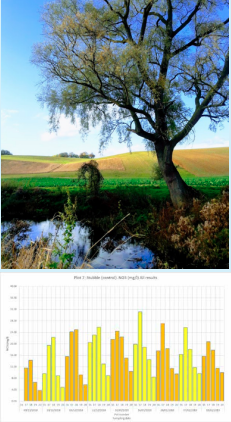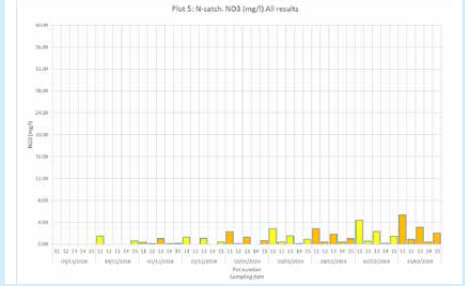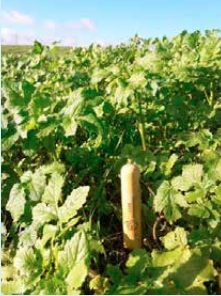
Written by Shaun Downman from Afftinity Water
I’m sure you are all fully aware that this autumn has been wet! However, thinking back to September things were very different. Where I live on the Hertfordshire/Cambridgeshire border, I can pinpoint the day the dry weather ended. I had willingly brought my spade along to a field site to dig a few soil moisture probes into the ground as part of one of our research projects. I think a pick axe would have been more appropriate given how baked solid the ground was. As I left the site the heavens opened and, apart from a few days respite here and there, it hasn’t really stopped since.
I suppose its always been thus in the UK. We’re a maritime island on the edge of the Atlantic and our weather is a fickle beast at best. However, we’re all aware that the weather we get lately isn’t quite so ‘normal’ with new records broken each year. This year alone we saw the highest temperature ever recorded in the UK at 38.7oC and as I write Sheffield has recorded its wettest autumn with still a week remaining and no let-up in the rain on the horizon. A common phrase I hear (and repeat myself) is that this extreme weather is ‘the new normal’ and I tend to agree with its sentiment.

This ‘new normal’ weather is already having consequences for our lives, jobs and the environment and how we adapt to climate change in the coming years will be key. For us in the water industry we need to prepare for a future that will bring less predictable weather patterns with more intense rainfall and longer periods of drought alongside more people needing more water. Climate change will also affect the way we farm in this country and I believe that resilient soils will be key in helping farms stay profitable and adaptable.

In a wet autumn like the one we’re currently experiencing, soils that have had cover crops and reduced tillage have generally been easier to travel on and plant up than those deep tilled and without cover. This in my mind is what resilience is all about. Clearly, we are not going to get autumn weather like this every year, but we may get it more often. Cover crops and good soil health will give you that added resilience to get on the field in a difficult year. Also, in a dry year like the one we had last summer there was good anecdotal evidence of direct drilled fields holding onto the moisture for longer than those that were tilled.

The environment also benefits from resilient soils. Soils that capture more carbon could contribute towards offsetting rising emissions. In-turn raising your soil organic matter content will also hold more water which could help reduce flood risk and reduce sediment loss into rivers. Cover crops help capture excess nitrate which will readily leach if soils are left bare. These are all some of the ecosystem services that can be delivered by farmed land on top of the vital task of growing food and all signs are that future governments will have a greater focus on using public money to pay for these services.
Water companies too are interested in obtaining some of these ecosystem services with a number of companies, including Affinity Water, trialling schemes to buy the service that cover crops deliver to water quality which means the farmer doesn’t shoulder all the risk. We pay the farmer a fee to grow cover crops in areas that are high risk for nitrate leaching with a higher price given for those species that are known to scavenge nitrogen well, such as oil radish, and a higher price still the earlier the cover crop is drilled following harvest. Despite difficult (dry) drilling conditions and rife cabbage stem flea beetle, the scheme has worked well this year with some good covers being seen out there helping build resilient soils and protect water catchments.
The graphs below show nitrate leaching in a stubble field (top chart) and a field planted with a cover crop (bottom chart). This clearly demonstrates how much nitrate is captured by the cover crop which will help reduce nitrate leaching and may reduce N rates in the following crop.
If you have any questions, comments or thoughts on our cover crop scheme or other work please don’t hesitate to drop me an e-mail:
shaun.dowman@affinitywater.co.uk